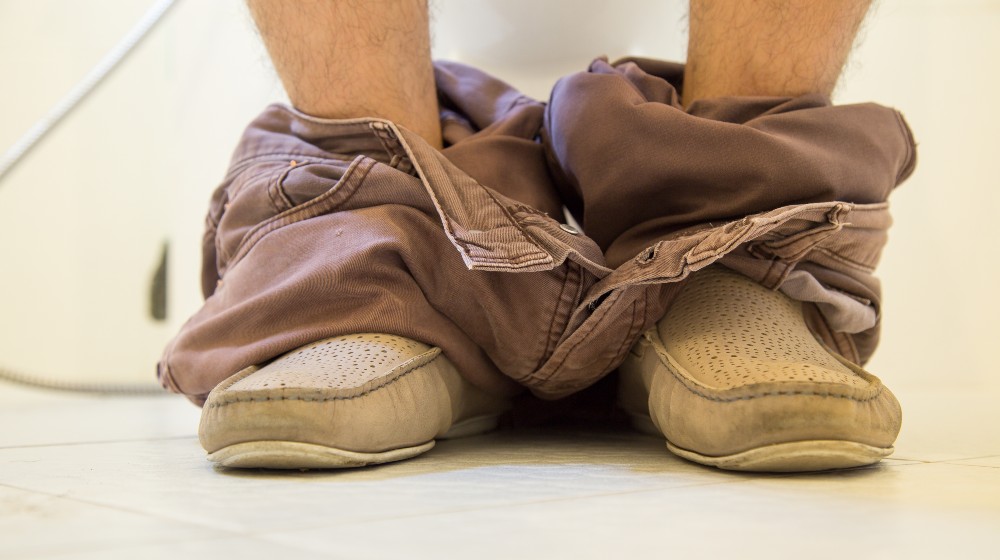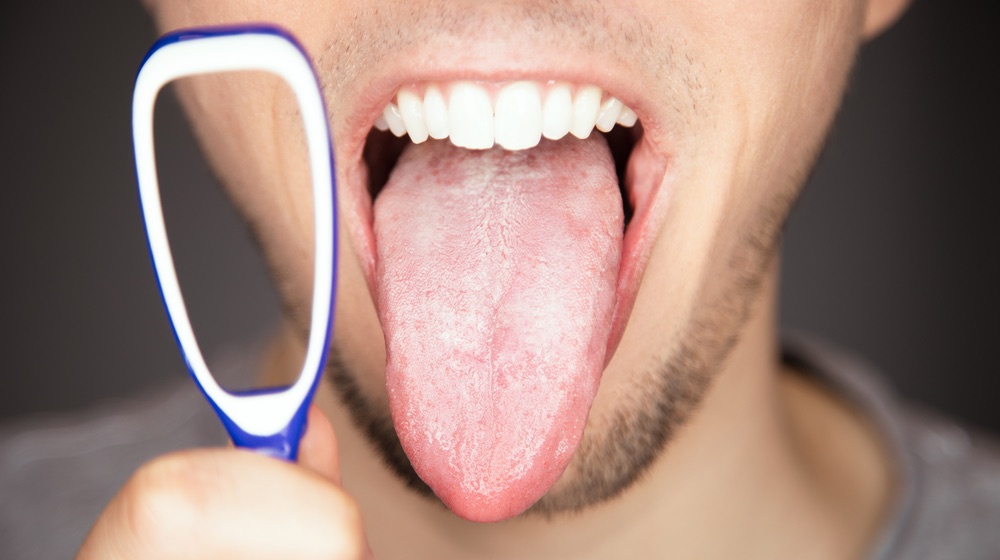Reducing your stress provides lifelong health benefits. It is critical to carve out time to relax and refresh each day. If this is a new habit, try devoting 10 minutes to one of these relaxation techniques. You should feel the benefits almost instantly!
RELATED: An Easy & Effective Guide To Breaking Bad Habits
Try These Proven Relaxation Techniques To Enjoy A Better Life
1. Exercise

This may be the last thing you feel like doing when you are stressed, but it’s the one thing you need the most. Just 10 to 20 minutes of exercise, even a brisk walk, will release endorphins and reduce stress. It’s proven and it works!
The benefits are strongest when you exercise regularly. Try to find an activity or exercise you enjoy, such as walking, dancing, rock climbing, or pickleball. People who exercise regularly are less likely to experience anxiety. There are a few reasons behind this:
- Stress hormones: Exercise lowers your body's stress hormones — such as cortisol — in the long run. It also helps release endorphins, which are chemicals that improve your mood and act as natural painkillers.
- Sleep: Exercise can also improve your quality of sleep.
- Confidence: When you exercise regularly, you may feel more confident in your body, which in turn promotes mental wellbeing.
2. Reduce Caffeine Intake

Sure, you might like one or two cups of coffee in the morning. But if you find yourself drinking coffee all day long, it could be time for a caffeine reduction.
Coffee in moderation has been shown to have benefits, but overuse can actually cause jitters. Soda has actually been linked to stroke and heart disease, so if this is your choice for caffeine, consider a swap to tea or coffee.
3. Journaling

Writing out the things that are challenging in your life can actually reduce stress fairly quickly. It’s also beneficial to create a gratitude journal. People who write down a few things they are grateful for each day are happier and less stressed overall.
4. Chew Gum

But don’t pop it or crack it around others or you may stress them out! People who chew gum have more of a sense of well-being and lower anxiety. One possible explanation is that chewing gum causes brain waves similar to those of relaxed people.
Another thought is that chewing gum promotes blood flow to your brain. Chewing gum also aids digestion.
5. Laugh

Laughter improves your mood instantly. This is one reason it is good for grandparents to be around children. It's hard to feel anxious when you're laughing, and children are usually a good source of humor. It also relieves tension by relaxing the muscles.
A study among people with cancer found that people in a laughter-focused group experienced more stress relief than those who were simply distracted. Try watching a funny TV show or hanging out with friends who make you laugh.
6. Spend Time With Friends and Family

Everyone needs human interaction. The sad thing about our society is that we seem to have more distance between us on the map. Make the effort to stay in touch and see each of the folks you love.
Social support from friends and family can help you get through stressful times. Having friends is one of the most valuable resources we have.
RELATED: 9 Foods for Brain Fog | Foods That Improve Memory and Concentration
7. Learn To Say No

Set priorities. Learn to say no. If anything interferes with those priorities, you have to say no.
When people take on more than they can handle or are over-scheduled all week, this compounds the stress in their life. It does not leave any time a break or relaxation.
8. Try Yoga or Meditation

Yoga allows you to be present at the moment. This is a perfect way to destress. You learn the discipline to let other things go. Research has found that yoga can enhance mood and may be as effective as antidepressant drugs in treating depression and anxiety.
Meditation is similar in that you are clearing your mind and removing the focus on stressors. Your body and brain are calm and your overall system hits a relaxation point.
9. Practice Mindfulness

Ancient advice tells us to be present where we are and concentrate on what we are doing. Then you will know the true nature of the Force. Mindfulness will help you stay in the moment.
It’s pretty hard to be stressed about the past or the future if you are focused on living in the moment. This will give you a better peace about things you cannot control, and allow you to focus on things you can control.
10. Practice Deep Breathing

Mental stress activates your nervous system, signaling your body to go into “fight-or-flight” mode. During this reaction, stress hormones are released, and you experience physical symptoms such as quicker breathing, a faster heartbeat, and constricted blood vessels.
Deep breathing exercises can help activate your parasympathetic nervous system, which controls the relaxation response. There are several types of deep breathing exercises, including diaphragmatic breathing, abdominal breathing, belly breathing and paced respiration.
The goal of deep breathing is to focus your awareness on your breath, making it slower and deeper. When you breathe in deeply through your nose, your lungs fully expand, and your belly rises. This breathing will help you slow your heart rate and achieve your goal of feeling more peaceful.
11. Adopt a Pet

Having a pet helps reduce stress. There are endless studies proving that being around animals will reduce stress and help a person relax. This is why therapy dogs are in demand at hospitals and in overcoming traumatic situations. There are many programs set up where children can read to shelter dogs.
The dogs are less depressed about being in the shelter and the children were calmer and felt they were helping to make the dogs happier. Their reading skills improved more quickly. Another study shows that people who have a pet to care for live longer than those who don’t have a pet.
Disclaimer: While this is a good relaxation tip, please make sure that you're up to the duties and responsibilities of adopting a pet. Don't just adopt a pet because you want to be relaxed, because the truth is it takes a lot of effort in taking care of one.
12. Listen to Music

Listening to music and dancing are great stress reducers. People who have music in their lives are happier and healthier people. People who dance are more physically fit as well.
It’s hard to be stressed if you are dancing. This is definitely one fun relaxation technique you need to give a try!
13. Hug it Out

People need physical contact. A few daily hugs are just what the doctor ordered. Oxytocin is a neurotransmitter that acts on the brain's emotional center, promoting feelings of contentment, reducing anxiety and stress.
When you hug often, your level of oxytocin increases, which strengthens your social bonds. Hugging also stimulates dopamine and serotonin production in the body.
A good hug is the fastest way for you to get oxytocin flowing in your body. It lowers your blood pressure and cortisol levels, enabling a higher quality of sleep.
Warning: With the pandemic, please make sure you do this with people living with you and whom you are safe to be with.
Watch this video from Ask Doctor Joe for relaxation techniques through breathing:
There are thousands of articles about how to reduce stress. Some of these relaxation techniques are unique and some have been around for centuries. We all need to pay attention to the signs of stress and do what we can to reduce things that may be causing us stress. If stress is taking a toll on your health, it may be time to develop new habits.
Take a look at your daily routine and write out the stressors. Are they internal or external? Do you have too many commitments outside of work and home life? Be sure to include everything at work and at home. If you have children, include the children, spouse, aging parents, church commitments, etc.
These things add up. One at a time might not seem like much, but together might be a ton of stress for one person. Try to incorporate a few of these techniques. If you can learn to relax now, you will enjoy a longer, healthier, happier life with your family and friends.
Do you have a great relaxation technique? We’d love to hear your thoughts in the comments section below.
Up Next:
- What You Need to Know About Your Adrenal Glands
- How To Reduce or Eliminate Bloating Effectively
- 7 Healthy Ways to Jumpstart Your Day
Calling all crafting Health Buffs! If you’ve got the gift of keeping healthy and sharing this knowledge through writing, Click here if you want to write for us.
Please stay connected with us on Facebook, Twitter, Instagram, and Pinterest, and make sure to join our community of healthy living and minded people here.
Editor’s Note: This post was originally published on August 20, 2019, and has been updated for quality and relevancy.
Trending
Best Multivitamin for Men | Top 10 Best Multivitamins for Men 2022
Tongue Color | 7 Scary Tongue Color Meanings
Get Updates
SIGN UP FOR OUR NEWSLETTER TODAY


Tongue Color | 7 Scary Tongue Color Meanings

